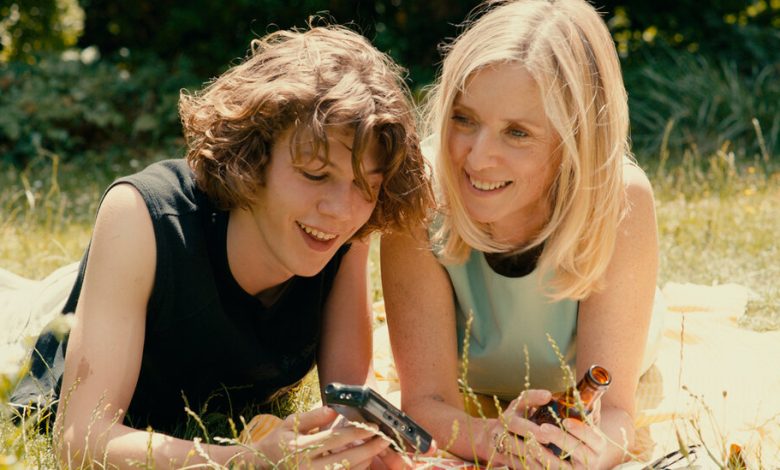‘Last Summer’ Review: A Shocking Affair to Remember

When Anne, the elegant, enigmatic protagonist in Catherine Breillat’s “Last Summer,” walks in a room, she holds your gaze as formidably as she holds those of everyone in this startling, perverse French movie. A lawyer, wife, mother and sister, Anne likes sheath dresses and high heels, tasteful antiques and a sense of order. She’s serenely self-possessed, and everything is in her life is just so, which suggests that she’s either invincible or waiting to break. Both are in play when she abandons herself in a shocking, recklessly consuming affair.
Few directors get as deeply under the skin as Breillat, a longtime, reliably interesting provocateur who tests the limits of what the world thinks women should do and say and be. Breillat is interested in complexity, not orthodoxy (feminist or otherwise), in autonomy and subjugation, and in all the ways that pleasure and desire can take violent hold of minds and bodies. She was in her 20s when she directed her first feature, “A Real Young Girl” (1976), about a teenager’s sexual coming-of-age. It’s a messy, jolting movie; there aren’t many filmmakers who shock you like Breillat does and with such supremely natural ease.
Anne, played by a superb Léa Drucker, seems wholly satisfied in her world. She and her loving, attentive husband, Pierre (Olivier Rabourdin), have two sweet girls, and live in a large, handsome suburban home. She’s close to her sister, Mina (Clotilde Courau), and Anne’s work seems satisfying and perhaps even important: She advocates for victims of sexual abuse and in cases involving parental custodianship. Outwardly, her life looks ideal, if maybe overly comfortable, and its frictionless surfaces — especially in a French movie about upper-class people — seem primed for disruption. Even so, nothing about her suggests that she will soon lose herself in an affair with her 17-year-old stepson, Théo (Samuel Kircher).
When “Last Summer” opens, Théo is living with his mother and has just been arrested. Pierre has decided to bring his son back home with him, a decision he explains to Anne while the couple are in their bedroom, an intimate setting that is as meaningful as it is banal. As Pierre hurriedly packs his bag, Breillat discreetly pushes the camera closer to him as he and an offscreen Anne talk. The scene is brief, and seemingly purely informational. Yet right after Pierre says that Théo punched a teacher, Breillat cuts to Anne who’s busily changing her clothes. Her dress is hiked over her face, exposing her trim body and pretty bra.
Within minutes, Breillat has introduced both her characters and their world with brisk narrative economy and a sly, telegraphing conflation of sex and violence: the bedroom, the couple, the son, the punch, the lingerie. The movie has scarcely begun yet everything, including the complacency and first stirrings of trouble, is in place. These stirrings abruptly turn into klaxons when Théo arrives shortly thereafter, and Anne goes to speak to him. The moment that he appears onscreen — he’s on the bed in his room, his messy dark curls cascading over his face — it’s clear that he is this movie’s version of Chekhov’s gun.